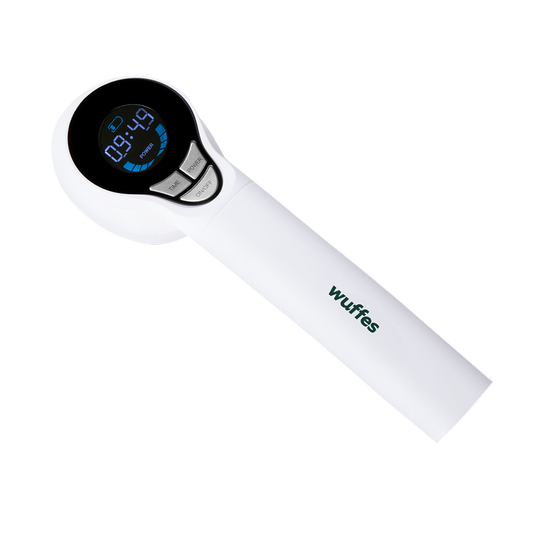Dogs are sensitive creatures, which makes them more vulnerable to stress and anxiety. What can make this tricky is that some signs of stress in dogs may look like their regular behaviors, leading pet parents to miss early warning signs. Understanding dog stress is crucial—early detection and action can make a significant difference in their well-being. In some cases, even something as simple as the right multivitamin can help reduce your dog’s stress levels.
Here’s what you need to know about recognizing stress in dogs and how to address it.
What are the signs of stress in dogs?
One of the most common signs of stress in dogs is excessive barking. Normally, dogs bark at strangers, unfamiliar objects, or when they’re active. However, if your dog is barking loudly and continuously without these triggers, they may be stressed.
Whining is another indicator and often accompanies barking. It may sound as though your dog is gasping for air—a clear sign they’re trying to get your attention and relieve their anxiety.
Changes in body language can also signal stress. Stressed dogs may either lower their heads or raise their tails straight up. You might also notice them pacing nervously, walking in circles, or repeatedly pacing back and forth in the same area as a way to self-soothe.
Stress can also manifest in aggressive behaviors. This can include growling or biting, even towards familiar people, including you. Chewing on objects, or sometimes even themselves, can also be a sign of stress.
Gastrointestinal problems like indigestion, diarrhea, and flatulence are also common in stressed dogs. This may lead to a noticeable decrease in appetite and restlessness.
Lastly, prolonged stress can result in excessive shedding or even hair loss. If your dog is shedding more than usual or outside of their regular shedding season, it may be a psychological issue. Dogs under stress may bite or lick their skin excessively, which can lead to wounds, inflammation, or even alopecia.
How to manage anxiety in dogs
Just like humans, start by identifying and removing the source of stress whenever possible. Common causes of anxiety include loud noises, unfamiliar environments, meeting new people or animals, and sudden changes in routine.
For unavoidable stressors, giving your dog time to adjust is important. If your dog is anxious around new people, let them interact slowly and in a positive environment. For a new environment, engage them in activities they enjoy to help them feel more comfortable. Similarly, transitioning to a new routine gradually can ease anxiety.
It’s also important to confirm that your dog’s symptoms are indeed due to stress and not another underlying issue. For instance, irregular postures could be a sign of hip or joint discomfort. If stress-related signs persist, it’s best to consult with your veterinarian, who may recommend supplements to support joint or hip health.
You can also give your pup a supplement that promotes relaxation, helping reduce effect of external stressful factors.
Finally, consider adding Vitamin D to your dog’s routine, as it is known to improve energy levels and overall mood. By supporting both their physical and mental health, you can help keep your dog happier and healthier.
Conclusion
Stress in dogs is a serious concern, but as a loving pet parent, you can take steps to recognize it early and provide the right care. By understanding the signs of stress and knowing how to manage its effects, you’ll be able to create a calm and supportive environment that helps your dog live a more relaxed and fulfilling life.










